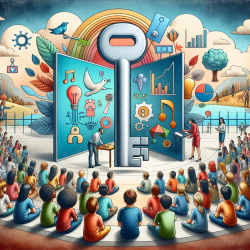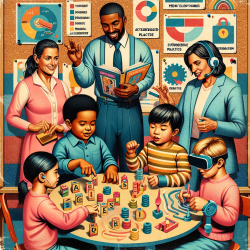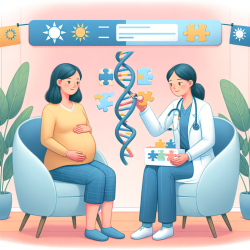Introduction
As a practitioner dedicated to improving outcomes for children, understanding the latest research on interventions for adolescents on the autism spectrum is crucial. A recent study titled "Effects of Social Skills Training for Adolescents on the Autism Spectrum: a Randomized Controlled Trial of the Polish Adaptation of the PEERS® Intervention via Hybrid and In-Person Delivery" provides valuable insights into the efficacy of social skills training (SST) for this demographic. This blog delves into the findings and their implications for practitioners.
Understanding the PEERS® Program
The Program for the Education and Enrichment of Relational Skills (PEERS®) is a structured, parent-mediated social skills training program developed at UCLA. It is designed to help adolescents on the autism spectrum initiate and maintain peer relationships through skills like conversational abilities, electronic communication, and conflict resolution. The curriculum is tailored to leverage the strengths of autistic individuals, such as visual thinking and good memory.
Research Findings
The study involved 29 adolescents aged 11-16, randomized into a Treatment Group and a Waitlist Control Group. Due to COVID-19, the Treatment Group received part of the intervention online. Key findings include:
- Increased Social Skills: Adolescents in the Treatment Group showed significant improvements in social skills and knowledge about social norms.
- More Peer Interactions: There was an increase in the number of get-togethers with peers, which was maintained over a six-month follow-up period.
- Mode of Delivery: The study found no significant difference in outcomes between hybrid and in-person delivery modes, highlighting the flexibility of the PEERS® program.
Implications for Practitioners
For practitioners, these findings underscore the importance of culturally adapted, evidence-based interventions like PEERS®. The program's success in both hybrid and in-person formats suggests that it can be effectively implemented in various settings, making it accessible to a broader range of adolescents. Practitioners are encouraged to consider incorporating PEERS® into their practice and to explore further research on its application in different cultural contexts.
Conclusion
The Polish adaptation of the PEERS® program demonstrates its potential as a powerful tool for enhancing social skills among adolescents on the autism spectrum. By leveraging the strengths of these individuals and providing structured, engaging training, practitioners can foster meaningful improvements in their social interactions.
To read the original research paper, please follow this link: Effects of Social Skills Training for Adolescents on the Autism Spectrum: a Randomized Controlled Trial of the Polish Adaptation of the PEERS® Intervention via Hybrid and In-Person Delivery.










